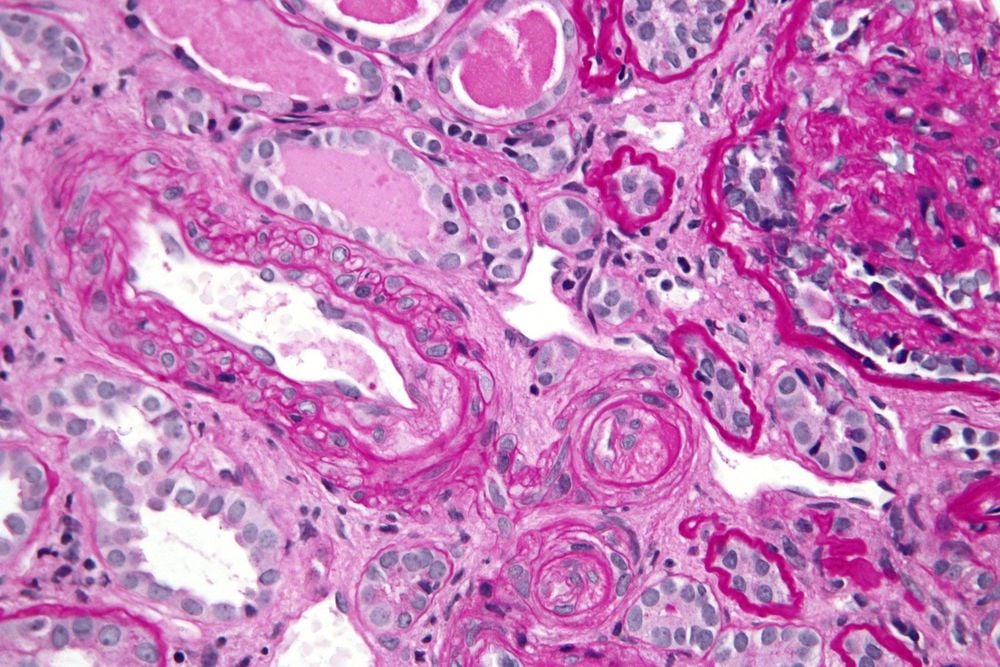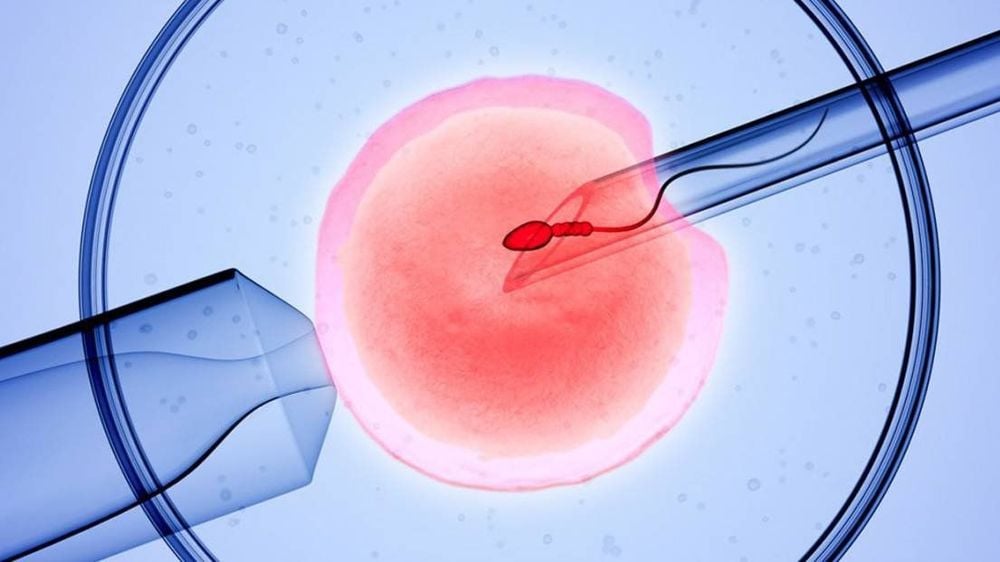This is an automatically translated article.
Repeated miscarriages are often associated with chromosomal abnormalities of the couple. In addition, it has been linked to some birth defects in the reproductive organs and other diseases. To limit the risk of recurrent miscarriage, couples should have genetic screening and regular health care.
1. What is a recurrent miscarriage?
Repeated miscarriage is defined as 2 or more miscarriages. After 3 miscarriages, you should have a general physical examination and perform tests as prescribed by your doctor.
2. What is the chance of multiple miscarriages?
A small number of women (1%) will have multiple miscarriages.
3. What is the most common cause of miscarriage?
Most miscarriages (about 60%) occur randomly when the embryo receives chromosomal abnormalities during fertilization. This genetic problem occurs by chance, not due to environmental influences. It occurs more commonly in women of reproductive age.

Trường hợp khi phôi thai nhận được các bất thường nhiễm sắc thể trong quá trình thụ tinh có thể gây sẩy thai
4. Are there other genetic problems associated with repeated miscarriages?
Translocation mutations (in which a chromosome segment is moved to a new location on the same or a different chromosome) of either couple is the cause of multiple miscarriages. People with this chromosomal mutation usually do not have any unusual signs or symptoms. However, some eggs or sperm will have abnormal chromosomes. If the embryo receives too much or too little genetic material, it often leads to a miscarriage.
5. What reproductive organ problems are associated with repeated miscarriages?
Some abnormalities in the reproductive organs can cause repeated miscarriages such as:
Separated uterus: The uterus is divided into two parts by a wall of tissue Asherman's syndrome: Adhesions and Scars that form in the uterus can cause repeated miscarriages. Miscarriage often occurs before a woman knows she is pregnant. Fibroids and polyps: These are benign (non-cancerous) tumors in the uterus.
6. What health problems can increase the risk of multiple miscarriages?

Hội chứng kháng phospholipid có thể làm tăng nguy cơ sảy thai nhiều lần
Women with some of the following conditions may increase the risk of multiple miscarriages :
Antiphospholipid syndrome (APS) : An autoimmune disorder in which the immune system produces antibodies against certain substances involved in blood clotting. APS is associated with multiple miscarriages and stillbirths. Diabetes: High levels of sugar (glucose) in the blood. Women with diabetes, especially those with poorly controlled disease, have a higher risk of miscarriage. Polycystic ovary syndrome also carries a higher risk of miscarriage.
7. What is the rate of multiple unexplained miscarriages?
50–75% of women with multiple miscarriages do not find a cause for the miscarriage.
8. What tests help determine the cause of repeated miscarriages?

Xét nghiệm di truyền xác định nguyên nhân di truyền của sảy thai liên tiếp
To help determine the cause of recurrent miscarriages, you will be asked about your medical history and previous pregnancies. In addition, the doctor may order a number of tests including:
General physical examination, including a pelvic exam. Blood tests to detect problems with the immune system. Genetic testing may be done to help detect the genetic cause of repeated miscarriages. Imaging tests may be considered to find out if there is a uterine problem causing repeated miscarriages. SEE ALSO: 2 genetic tests in consecutive miscarriage
9. Is it curable if the cause of multiple miscarriages has been identified?
If the cause of multiple miscarriages is determined, the doctor will recommend a treatment that addresses the cause of the miscarriage.
10. What to do when there is a chromosomal translocation mutation?

Trường hợp bị đột biến chuyển đoạn nhiễm sắc thể thường được sử dụng phương pháp thụ tinh trong ống nghiệm
People with translocation mutations need genetic counseling. After the genetic test results are available, the doctor will offer solutions for couples. The commonly used method is in vitro fertilization combined with genetic testing to help select the best embryos for implantation into the woman's body.
11. How are reproductive organ problems treated?
Surgery increases the chances of a successful pregnancy. For example, for women with a septum uterus, a septum in the uterus will be removed to increase the chance of pregnancy.
12. Treatment methods for people with antiphospholipid syndrome?
Anticoagulants such as heparin, sometimes in combination with low-dose aspirin, may be prescribed throughout pregnancy and for several weeks postpartum. This treatment increases the odds of a successful pregnancy in women with this condition.
13. What are the chances of a successful conception if there are multiple unexplained miscarriages?

Tiêm chủng trước khi mang thai ngăn ngừa bệnh trong thai kỳ
Approximately 65% of women with unexplained consecutive miscarriages have successful subsequent pregnancies.
Negative psychological effects are inevitable after a miscarriage, especially when there are consecutive miscarriages, family happiness is at risk of breakdown. If you are not stable and comfortable mentally, physically resting after a miscarriage, the chances of women keeping a successful pregnancy will be less. Therefore, to ensure fertility and have a healthy pregnancy in the next pregnancy, both husband and wife should have a reproductive health checkup 3-5 months before becoming pregnant.
The wife should:
Get vaccinated before pregnancy (especially against rubella because rubella in pregnancy is extremely dangerous ) Genetic testing to screen for genetic diseases before pregnancy Check for secondary infections In particular, women over 35 years of age, if they want to become pregnant (especially if they have never been pregnant), will have to have a very detailed health check because pregnancy at this age often problems: Ovarian failure, premature birth, higher risk of birth defects, placenta previa, preeclampsia. The husband should:
Check reproductive health, detect diseases of testicular atrophy, physiological weakness, weak sperm... Sexually transmitted diseases, especially those that cannot be cured, are extremely dangerous. Currently, Vinmec currently has many comprehensive health care programs for couples, pregnant mothers and their unborn babies, including basic pre-marital examination packages, advanced pre-marital examination packages, and pregnancy programs. package product. Vinmec has a team of experienced doctors in the fields of obstetrics and gynecology, IVF, stem cells, gene technology, capable of synchronously and comprehensively deploying the most advanced assisted reproductive techniques today.
Please dial HOTLINE for more information or register for an appointment HERE. Download MyVinmec app to make appointments faster and to manage your bookings easily.
Reference source: acog.org












